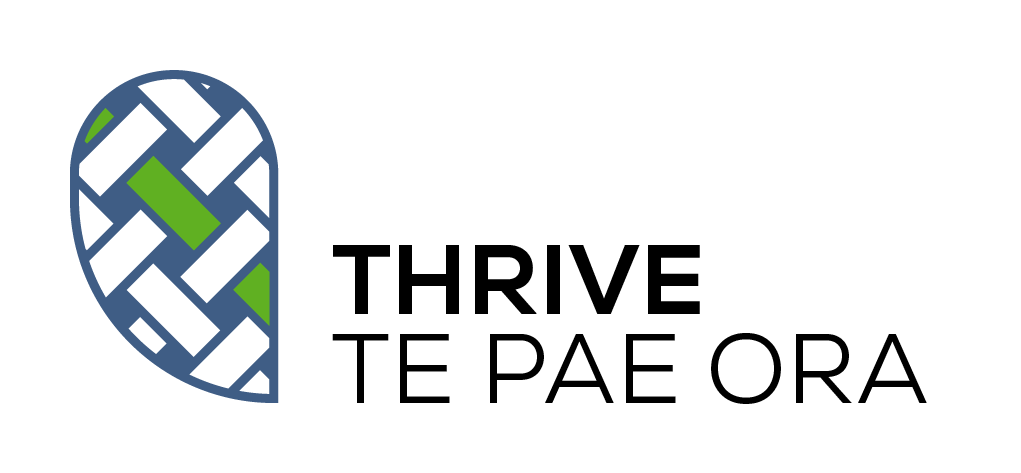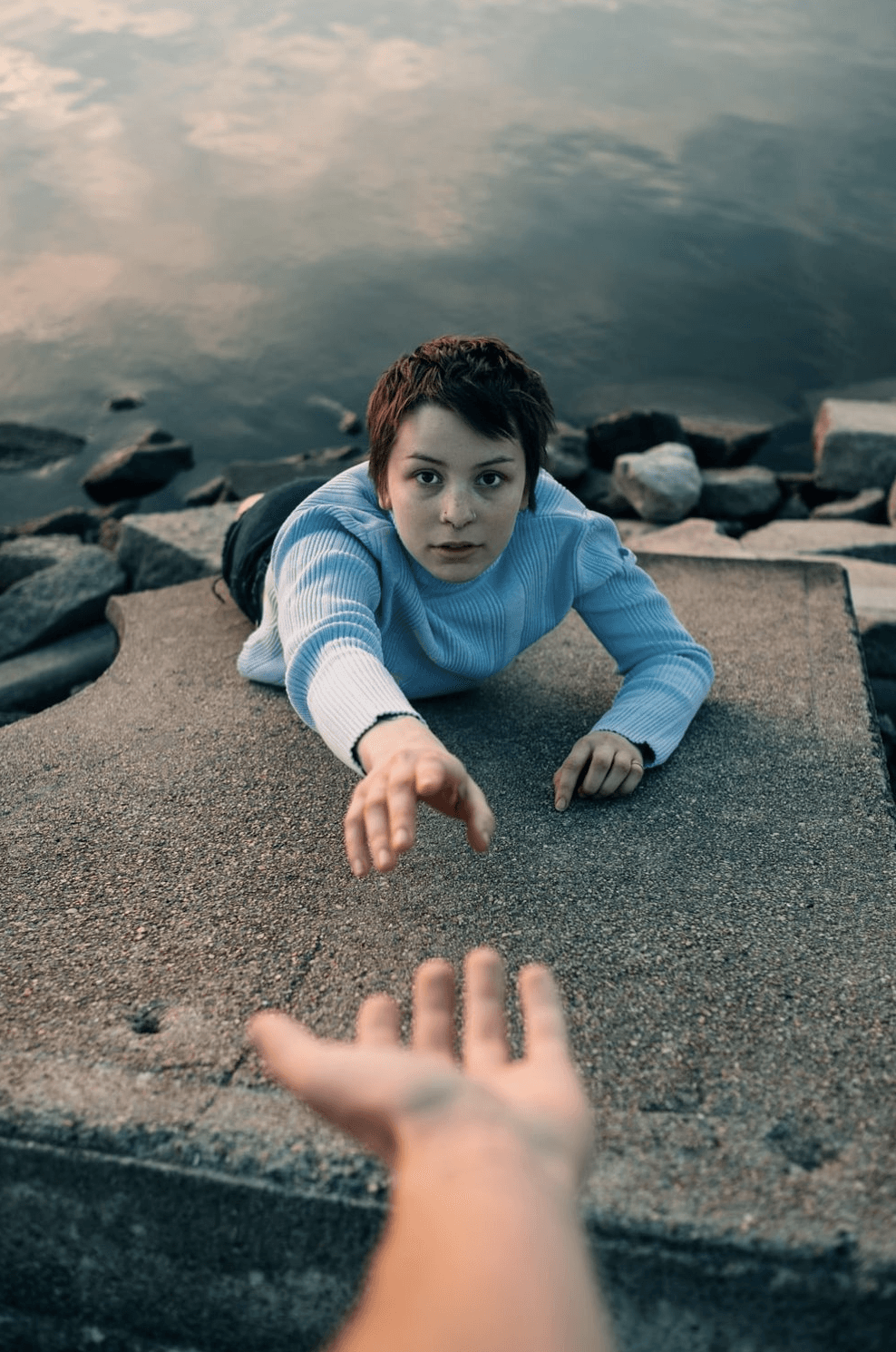Wellbeing eCoach
The following modules will teach you some simple ways to think more positively and tackle the issues that might be affecting the way you feel. The best part is it’s all online, it’s free and you can do it at home in your own time. Prefer some face to face support?
Make a referral so we can chat.
Connect
Making new friends
Do you ever feel that even though your friends may be just a tap of a button away, you’re still feeling lonely? Maybe you're not feeling as connected to them anymore and feeling as if your in this thing called life alone, which may leave you feeling lost and alone? Not to worry as you may be surprised to know this is very common especially in the world of social media .
What we are going to look at in this module is how, what and where we can connect… and of course why this is important..
D o you feel like you're spending too much time on social media?
Ever wondered why in traditional cultures people always came together in groups? People typically did not try to go it alone and that’s for good reason. As a group the chances of survival and thriving significantly increased because we could rely on the group for support, protection, food and safety. As with the animal kingdom humans have thrived in social groups and although the threat of being eaten or hunted doesn’t exist now – the internal need for connection is still within us. So how can we meet this need and feel more connected so that we can thrive the best we can?
How often have you thought to yourself – “I don’t need anyone else, I can do this myself!” how has that worked out for you?
When things are turning to custard in our lives, when we may be feeling low, struggling with an issue etc we need the most support available to use. Which for most people will be our family and friends who provide that support, especially in difficult times. Having a strong network of supportive whanau and friends helps enhance our mental well-being. We all need to connect with others, and at times a shoulder to lean on. Feeling socially connected, especially in an increasingly isolated world, is more important than ever. The benefits of social connectedness shouldn’t be overlooked.
Types of Connections
So what types of connectedness supports are there?
Socialising: doesn’t mean going out and trying to make as many friends as you possibly can, its about ideally having at least 1 or 2 real quality relationships with a partner, friends and or family/whanau members – quality over quantity. These are those planned or unplanned get togethers or catchups.
Social support: When sh#t hits the fan, who do you turn to first? This is what we call our natural support system, those people around us that when things go bad are there to help us with emotional support (caring, empathy a listening ear), practical support (moving house/flat, fixing/repairing something, support with an assignment) and informational support (specific knowledge in areas like doctors, professionals, teachers etc) Someone whether that be a friend, whanau member, caregiver, coach or who ever you could confide in when times are tuff, that you feel understands and is supportive. As the saying goes a problem shared is a problem halved.
Sense of belonging: This is about feeling connected and valued by others, to be part of something greater than ourselves. These are things like a church community, sports, social or cultural group, school or special interest/hobby group.
Importance of connections
If you were to give yourself a rating out of 10 (1 – little to none, 10 – a lot of supports) on the above ‘natural supports’ you have in your life currently in terms of social, social supports and a sense of belonging what would it be?
If your at a 5 or above well done! You must see the importance of connection for your own well being.
If you rated yourself 5 or below, or you’re not totally happy with your rating, lets have a look at a few ideas of how to boost your connectedness in the world.
At the end of the day who doesn’t want more of what the researchers say
connectedness brings –
increased happiness and satisfaction in life, reduced levels of stress, improved self-worth and confidence.
Let's Get Social
If you’re not sure how to begin forming social connections start by looking inward. What are your interests or hobbies? Looking for ideas – check out this link for a range of ideas that may spark your interest.
Found something that you might enjoy? A good place to start looking if it is available in your area and what else is going on locally is your local council website, they have a range of good info typically in the community directories.
Are there clubs in your local area for these groups – try google or face book search.
Devote time to becoming active in your community, volunteering, or joining a club (sports, musical, drama, art, hobby) or social organization. Are churches youth groups or spiritual groups your thing (google for your area or specific interest)
How about school clubs? Ask around there’s typically a lot going on locally you could connect with.
Local Marae is a great place to connect and get social – Start with a search of local Marae.
Marae fit is a great initiative to increase activity in a fun way while connecting with like minded people. Contact your local Marae.
Connecting with Whanau
Connected to Whanau
When we think about friends, or in this case aiming to make more or better friends, there are a few groups people tend to fit in. There is the ‘hi-bye’ friends – those ones you see regularly at work or school where convo is minimal. Regular friends are those you might catch up with socially out and about and maybe hang out with on occasion, the activity buddy. Then there are the besties – those you can yarn about anything with, that you can trust and rely on. Besties take time and effort….but they always start somewhere and they can change the course of your life! Think of a bestie you have now or have had, how did that start….how can you do that again? I bet they started as a complete stranger…
How's your anxiety about potentially turning up to one of these groups above on your own and having to make conversation with a complete stranger that could be your next bestie? Aaaaargh I hear....well the trick is to start small, like what the YouTube clips have said…here are a few more ideas of ways to start practicing those communication skills ….small and easy does it.
Meeting new friends: Lets start with a healthy mental image of meeting new people. Truth is a lot of people feel meeting new people is scary, that could be because of many different reasons. What's the first thing that pops into your head when you think of chatting to new people…is it ?
Maybe you have had a bad friend experience that your not keen to repeat. These thoughts can develop into fears, and shyness toward others is a result of fear. The first step is to realise these are just fears in our own minds. The truth is 95% of people are too concerned about these very things themselves to really pay much attention to you. While you worry about what first impression you will make, they are worrying about what first impression they will make on you most likely. They are probably just as scared as you are.
Here is a short YouTube clip that you may find helpful that explains why new social situations can be tricky sometimes.
Again like all of our clips if this is not for you check out Wikihow for some further ideas . Wikihow has some great ideas for overcoming fear of making new friends and ways of meeting new friends.
Starting small is the key. Start with just a smile or just say ‘hi’ to someone you wouldn’t normally. Start asking one small question of a shop assistant, bus driver, dairy staff, the school receptionist that you wouldn’t normally. Ask them with a genuine interest how their day is going or what they enjoy doing.
Are there any ‘hi-bye’ friends or ‘regular’ friends you would like to improve a relationship with, are they a potential bestie.
Get to know your friends’ friends. Do you have an interest in common, is there a group or new activity you could join in with them or to try on your own.
Meeting new people in a situation where you are doing something i.e. a sports or drama club can make it feel less awkward, and you'll be meeting like minded people.
Accept invitations to go out.
Once you are out there, someone has to make the first move. If the other party doesn’t initiate a chat, take the first step to say hey. Share something about yourself, and then give the other person a chance to share about him/her. Ask questions that let the other person talk about what they like. Most of all be yourself! People will like you for who you are, not what you try to be. Believe in yourself and make the effort to stay in touch with them.
Want to be a good communicator and listener - Try reachout.com’s 3 steps to better communication.
Want some ideas to maintain good friendships, identify unhelpful friendships or working through tough times in relationships – check out reachout.com’s helpful range of topics
Healthy Communication
Healthy communication isn’t all about just talking, active listening and being respectful are just as important. It’s easy when both people see eye to eye on things. But in a healthy relationship you might not always agree, but you can talk through your differences while feeling safe, respected, and heard. Healthy communication is NOT manipulative, mean-spirited, disrespectful, or one-sided. It’s not about getting your way - it’s about both of you being there for each other..
Conflict Resolution
So what if all of your good work making besties and building up your own supportive network all unravels because you had a disagreement.
Unfortunately for most, conflict is inevitable in life, but too much conflict isn't no good thing or good time. People deal with conflict in lots of different ways. Do you or someone you know avoid avoid avoid!, do you bury your head in the sand hoping when you come up it's all gone away?
Has an argument been so bad you don’t talk to that person anymore or just ignore them?
Dealing with conflict now is a great way to ensure you hold onto your besties or supportive friends or family for when you really need each other. Firstly remember everyone is entitled to their opinions and sometimes it's ok to agree to disagree. When this is not possible here are some tips...
Even if these ideas just give you some time to think about what to do next, that’s a start.
Conflict resolution involves 2 parts: clearly saying your thoughts and feelings about the situation and listening and trying to understand the other persons thoughts and feelings about the issue. Without both, resolving problems can be difficult.
Try some of these things as a starter:
- Think before speaking. No one can read your mind, tell them what you think and feel clearly.
- Own your statements by using ‘I’ statements. Stop blaming others, own your feelings. For example say “I feel upset when you…..” Rather than “You're making me upset…” this can help to not make the other person defensive.
- Make sure your friend has your full attention when they are speaking. Try to really understand their point of view, clarify if unclear, avoid assumptions.
- Stay focused on the matter at hand. Try not to get side tracked on historic issues or ‘bring up the past’. Resolve one thing at a time.
- Talk in person. It's really easy to misunderstand or misinterpret meaning via a text or message.
- Avoid yelling or raised voices where possible – take a time out if it gets heated.
- Be aware of your body movement/language, tone of voice and facial expressions in discussions– In general its agreed over 50% of communication is via body language – is your body language saying something different to what you are vocalising?
- Everyone makes mistakes, even you. Be prepared to apologise – it can go a long way to resolving a fight.
- You could get another friend or family member to help mediate, to help solve the problem.
When listening:
- Pay attention to what your friend is saying and acknowledge your interest and understanding in what your friend is saying. Really try to see the issue from their point of view.
- Try to listen for what is behind the words—sometimes the presenting ‘problem’ is not always the ‘actual issue’. Solving the ‘actual issue’ will help to get your friendship back on track faster.
- Try not to interrupt, get angry or to judge.
- I know its hard but don’t think about what you're going to say next when listening to someone…this is an indication you are not really listening to them.
When resolving problems:
- Try not to sweat the small stuff – sometimes its easier to just learn how to let the small things ‘be’
- Remain calm. Recognise when you are becoming angry or too emotional, agree on a time out if needed and when you will both come back to the conversation.
- Do not blame or accuse each other.
- Focus on the issue at hand, not the way you are feeling toward each other.
- Explore underlying issues.
- Accept that each other’s perspective is different, but not wrong.
- Be willing to apologise and forgive.
- Get some space – try to deal with any anger or frustration first. While space doesn’t resolve the issue sometimes its good to get some time away from it to clear your head with some exercise, time in nature, chatting with other friends, time with pets etc.
Get some advice from a trusted family member or wise friend. Getting a different perspective can help you understand why you have a conflict. It might also help you identify some useful strategies for resolving or handling it.
Helpful Links
At times we all go through difficult times. Sometimes if a friend is pulling away from us, we may automatically think its something we have done wrong…but it also may be our friend is having a tough time – sometimes we need to check in with them – the check-in app can help with ‘how to have that conversation’ – see if it’s right for you.
Sometimes its your family or Whanau you struggle to communicate with – here are some ideas to have those conversations from other young people.
Culture
He kākano ahau i ruia mai i Rangiatea – ‘I am the seed of my ancestors.’
Step back and take a moment; reflect on who you are, where you come from, and the things you believe in. No matter what your age, searching for your identity or where you fit in the world can help enhance our connections to others. Culture can play a big part in defining your identity by knowing who and what has influenced you to be the person you are today.
Whether or not you or your whanau are actively connected to your culture, having a strong sense of connection and identity can help to enhance not only our sense of belonging but our cultural values, our knowledge and at times our opportunities. Part of this journey to connection may include learning about your Whakapapa, finding people or places we feel connected to and exploring “What it means to be Maori”.
Whakapapa
Figuring out who you are and where you belong can be challenging but it is important to remember that this can also be a huge source of strength for all aspects of our wellbeing.
Spoken Word Poetry on the Importance of Whakapapa
Looking for some inspiration and awesome websites?
Utilising Kaupapa Māori approaches that inspires rangatahi leadership and wellbeing.
Toi Tangata is a Māori agency which develops, delivers, and champions kaupapa Māori based approaches to kori (physical activity) and kai (nutrition).
allright.org.nz has some good resources on strengthening your identity and culture.






